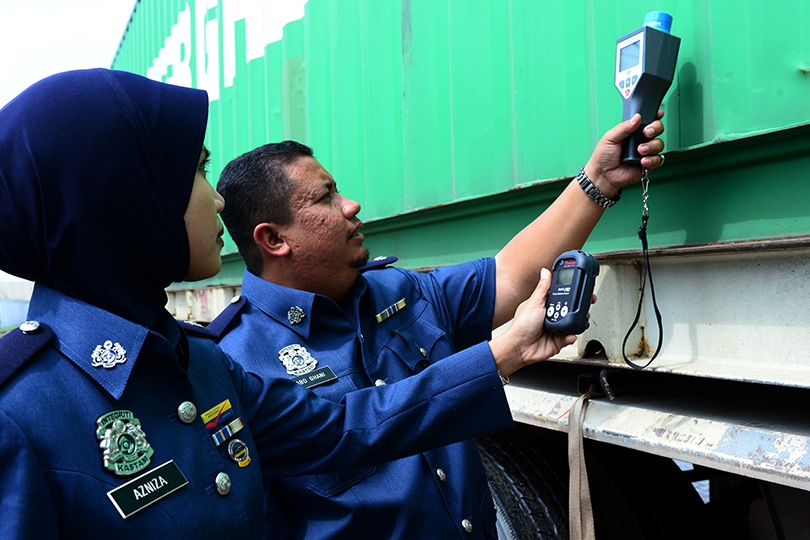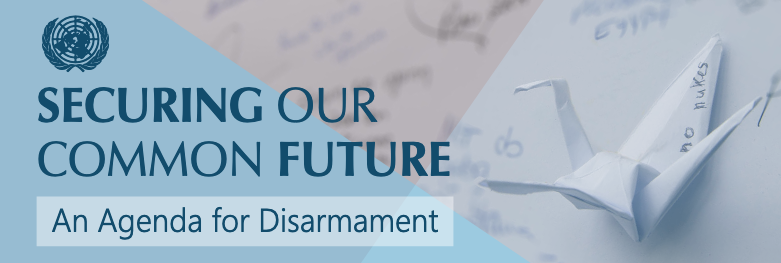UNODA Short Course Nuclear Security
Overview
Nuclear technology, science and materials are available around the globe for a wide range of peaceful purposes, including for energy, industrial, health and medical applications, as well as nutrition, water and environmental security. However, despite the great benefits nuclear technology may offer, the illicit acquisition and malicious use of such materials has potentially detrimental implications. In addition to uneven levels of protection among the various nuclear sites around the world, new global trends such as cyber activities and the risk of access by non-State actors, including terrorists, can pose a significant security concern to any society and international security.
The International Atomic Energy Agency (IAEA) is a key actor in the efforts to support nuclear security and prevent the misuse and diversion of nuclear material for non-peaceful purposes. The Agency helps its Member States, policymakers and experts worldwide to improve nuclear security, safely manage radioactive sources and combat nuclear terrorism. On one hand, the IAEA seeks to inform and advise States about the relevant international legal instruments, encourages adherence to them and supports Member States’ national implementation efforts. Secondly, the IAEA develops nuclear security requirements and guidance. Finally, the Agency provides technical assistance through trainings, technical advice, peer reviews and other advisory services.
This short course provides an introduction to the issue of nuclear security, outlining key international legally and politically binding instruments and initiatives designed to control nuclear material and other radioactive substances, including United Nations Security Council resolutions 1373 (2001) and 1540 (2004). The current challenges and threats posed to nuclear security will also be examined. Finally, the course presents the work of the International Atomic Energy Agency, the world’s main forum for scientific and technical cooperation in the peaceful use of nuclear technology.

Objectives
Upon completion of this course, you will be able to:
- Justify the significance of disarmament and non-proliferation, especially of nuclear non-proliferation;
- Explain the role the United Nations and the UN Office for Disarmament Affairs (UNODA) play in addressing disarmament issues;
- Describe the key focus of nuclear security and recent developments which challenge nuclear security efforts;
- Present the main international instruments, initiatives and groups that address the risks arising from the potential misuse of nuclear or radioactive materials; and
- Understand the mandate, thematic priorities and role of the International Atomic Energy Agency (IAEA) in enhancing efforts to strengthen nuclear security and in promoting peace.
|
| Audience: The course is open to all interested audiences. |
|
| Components and Methodology: Each module takes approximately 20 minutes and can be completed at the learner’s own pace The course consists of three thematic modules:
The course is available in English and is held in the Disarmament Education Dashboard, thus participants need a computer or mobile device, with audio and reliable internet connection. No special software is required. |
|
| Certificate: Upon successful completion of thematic modules, including examination and course evaluation a certificate of completion will automatically be issued to the participant. |
Short-course Series
The UN Office for Disarmament Affairs Short Course Series aims at making available quality education material on disarmament, arms control, non-proliferation and issues cross-cutting with security, such as gender and development. The courses are targeted for and available to the general public at UNODA’S globally accessible e-Learning platform disarmamenteducation.org.
In line with the UN Secretary-General’s Agenda for Disarmament this short-course series aims to contribute to the implementation of the Sustainable Development Goals.


